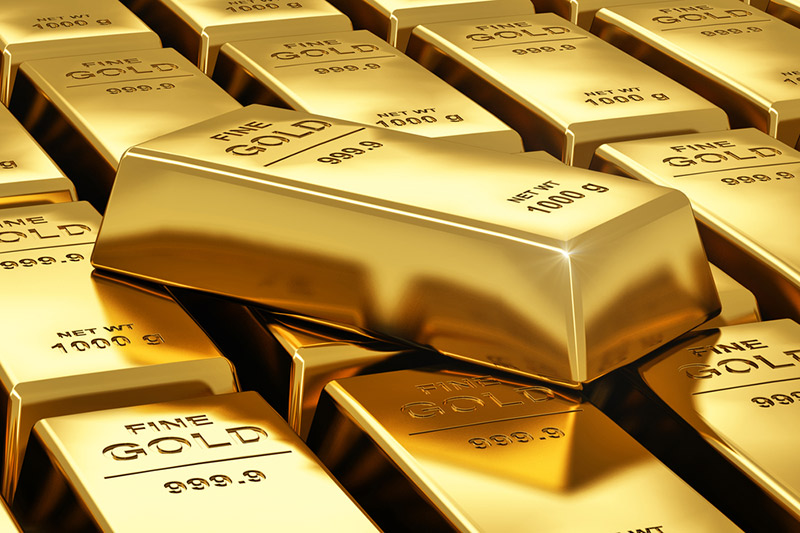Investing.com – Gold futures eased down on Thursday, as the U.S. dollar gained after the Federal Reserve gave no indications of further monetary stimulus, while lingering concerns over Greece’s sovereign debt supported prices.
On the Comex division of the New York Mercantile Exchange, gold futures for August delivery traded at USD1,543.35 a troy ounce during late Asian trade, shedding 0.25%.
It earlier fell to a daily low of USD1,542.60. Gold prices rose to a seven-week high of USD1,558.10 a troy ounce in the previous session.
The Federal Reserve announced on Wednesday that it kept its benchmark interest rate unchanged at a historical low of 0.25% in June and gave no indications of further stimulus following the conclusion of its USD600 billion bond-buying program at the end of the month.
In its accompanying rate statement, the Fed cut its 2011 economic growth forecast for the U.S. to a range of 2.7% to 2.9%, down from a previous estimate of 3.1% to 3.3%. Policy makers also cut their forecast range for 2012 growth and lifted estimates for unemployment.
Speaking following the announcement, Fed Chairman Ben Bernanke said that the central bank was “at least” two or three meetings away from a move in monetary policy, but that the time period could be "significantly longer" depending on the economy.
The dollar index, which tracks the performance of the greenback versus a basket of six other major currencies, was up 0.46% to trade at 75.64.
A stronger dollar saps demand for raw materials as an alternative investment and makes metals priced in the currency more expensive in terms of other monies.
Meanwhile, concerns over Greek sovereign debt continued to support prices ahead of a two-day economic summit in Brussels of European leaders.
Elsewhere, silver for July delivery slumped 0.75% to trade at USD36.16 a troy ounce during late Asian trade, while copper for July delivery dipped 0.33% to trade at USD4.048 a pound.
Australia’s Perth Mint said on Wednesday that it sold a record 10.7 million 1-ounce silver coins since July 1 of 2010, 66% percent higher than the previous full fiscal year and about 10-fold more than five years earlier.
On the Comex division of the New York Mercantile Exchange, gold futures for August delivery traded at USD1,543.35 a troy ounce during late Asian trade, shedding 0.25%.
It earlier fell to a daily low of USD1,542.60. Gold prices rose to a seven-week high of USD1,558.10 a troy ounce in the previous session.
The Federal Reserve announced on Wednesday that it kept its benchmark interest rate unchanged at a historical low of 0.25% in June and gave no indications of further stimulus following the conclusion of its USD600 billion bond-buying program at the end of the month.
In its accompanying rate statement, the Fed cut its 2011 economic growth forecast for the U.S. to a range of 2.7% to 2.9%, down from a previous estimate of 3.1% to 3.3%. Policy makers also cut their forecast range for 2012 growth and lifted estimates for unemployment.
Speaking following the announcement, Fed Chairman Ben Bernanke said that the central bank was “at least” two or three meetings away from a move in monetary policy, but that the time period could be "significantly longer" depending on the economy.
The dollar index, which tracks the performance of the greenback versus a basket of six other major currencies, was up 0.46% to trade at 75.64.
A stronger dollar saps demand for raw materials as an alternative investment and makes metals priced in the currency more expensive in terms of other monies.
Meanwhile, concerns over Greek sovereign debt continued to support prices ahead of a two-day economic summit in Brussels of European leaders.
Elsewhere, silver for July delivery slumped 0.75% to trade at USD36.16 a troy ounce during late Asian trade, while copper for July delivery dipped 0.33% to trade at USD4.048 a pound.
Australia’s Perth Mint said on Wednesday that it sold a record 10.7 million 1-ounce silver coins since July 1 of 2010, 66% percent higher than the previous full fiscal year and about 10-fold more than five years earlier.
